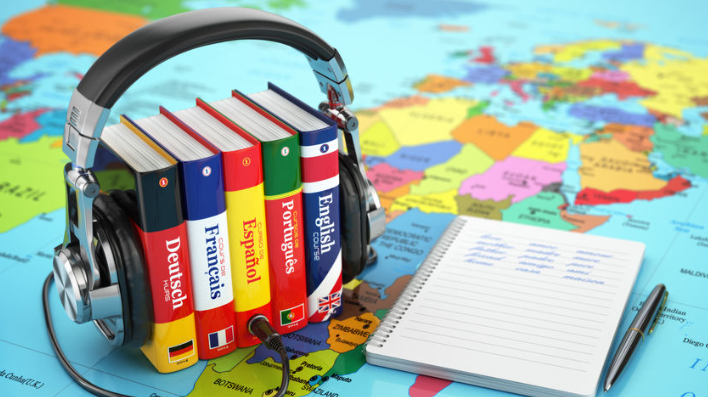TL;DR:
- Key considerations before moving abroad include personal motivations, the pros and cons of living as an expat, and whether the lifestyle suits individual needs and aspiration.
- Essential research should involve studying the chosen country’s demographic and social structure, historical and political context, and cost of living and lifestyle.
- Managing finances when moving overseas involves creating a detailed budget, understanding tax implications, and strategically managing local and home bank accounts.
- Language proficiency can aid in cultural adaptation in a new country. It’s useful to find resources for language learning and practice.
- Joining expat forums and communities for support and friendship is recommended. Engaging in social interactions and volunteering for community projects are also beneficial strategies for making connections.
- Preparing for an international move requires a comprehensive checklist, understanding the right time to move and strategies to avoid common mistakes.
- Facing challenges in an expat lifestyle may include dealing with homesickness, adapting to a new culture, and embracing changes and uncertainties. Recommended strategies include keeping in touch with loved ones, showing respect and interest in local customs, and embracing changes.
Are you considering becoming an expatriate? This insightful guide explores reasons for moving abroad, research needed, financial considerations, and tips for acclimating to your new home. Find out if expatriate life is right for you!
Why consider moving abroad as an expat ?
As an expat moving abroad, it’s vital to deeply examine your motives..
Understanding the reasons for your move
Are you seeking a fresh start? On the hunt for new career opportunities? Or perhaps you’re simply a lover of travel, eager for a new backdrop. Whatever your potential reasons for moving abroad, your choice should be grounded in your personal needs and desires.
Weighing pros and cons of expat life
It’s not all sun and sailing, mind you. Expatriate life can be laden with its share of challenges, such as language barriers, cultural differences, and the inevitable homesickness. The adjustment period can be taxing mentally and emotionally, and it’s something to bear in mind when weighing the pros and cons.
Evaluating if expat life caters to your needs and aspirations
However, the benefits often outweigh the drawbacks for many. As an expat, you gain the chance to immerse in a new culture, form international friendships, and receive potentially lucrative career opportunities. These might be the very things to drive your personal growth, and who knows, propel you toward your aspirations.
Deciding to become an expat is a huge, life-altering decision. It requires thoughtful evaluation of your lifestyle, your needs, and your dreams. Is expatriate life calling out to you? Well, it’s a call worth considering.

How to start your research on your chosen country?
When you think of relocating to another country, it’s not just an adventurous leap, but also a crucial task which needs ample research. So, where do you begin?
Looking at demographics and social structure
Start by studying the demographics. It gives you an idea about the people you will live among. Look for details like age groups, cultural diversities, urban vs rural populations, and more. These details offer a sneak peek into the society you will be part of.
Then, try to understand the country’s social structure. What are the standards? Are they rigid or flexible? You must know.
Investigating historical and political contexts
Going through a country’s history is like a time travel. It helps you understand their present in light of their past. This gives you a broader sense of their culture, customs, and traditions. At the same time, don’t avoid the political climate. It shapes the everyday life of citizens and surely of expats too.
Understanding cost of living and lifestyle
Lastly, investigate the cost of living. Are you comfortable with it? Can it fit your budget? How does it compare to your current cost of living? Find out.
Also, consider the lifestyle you might lead in the country. Is it calm or fast-paced? How much leisure time do people usually have? These are not trivial questions. The answers guide you in taking better decisions.

What to Know About Managing Finances When Moving Overseas?
Handling your money right could make moving overseas a breeze. Let’s discover how.
Creating a Budget for Your Move
Before you leap, plan. A well-set budget would smoothen your path. You could do this by making use of free budget spreadsheets and templates. Keep in mind costs such as transportation, housing, and daily living. If unprepared, small expenses might pile up and shock you. Thus, planning a budget before moving overseas is a must.
Understanding Tax Implications
Now let’s dive into expat tax advice. Navigating taxes is a task, especially when it isn’t on home turf. Most countries have a tax treaty with others. This helps to avoid double taxation, but not all. Make sure to check your home and host country’s tax treaty. Always consult a professional to understand your tax duties as an expat.
Managing Finances Wisely: Banking Tips for Expats
Another major concern when moving overseas is banking. Will your bank allow overseas transactions? If not, look for international banks in your new home. Some key international banking tips would be to:
- Keep a home bank account. This assists in managing finances from your home country.
- Open a local bank account. It eases daily transactions and reduces international transaction fees.
- Learn about and utilize local banking regulations and services. Understanding the local banking system can help you avoid common pitfalls and take advantage of services that are specific to your new country.
- Use online banking tools. Many international banks offer robust online and mobile banking services that allow you to manage your finances efficiently from anywhere in the world.

How can language learning aid in adjusting to a new country?
You’re all set to start a new life in a fresh location. There’s one thing that could make your move less bumpy – knowledge of the local lingo. Yes, this bit, more than any other, can make adjusting to a new nation a bit more fluent.
Evaluation of language barriers in your chosen destination
In your new nation, you might face a language wall. Some might speak English, but locals cherish it when you try speaking their tongue. Knowing what to expect will make the transition less of a shock.
Now, where do you pick up the lingo basics?
Finding resources for language learning
Expats need to know where they can learn the new speech. Many online platforms offer language lessons. Hire a tutor, get language apps, or join local clubs. Immersing in the lifestyle and conversations around can do wonders as well.
Language is a major part of culture. Getting a grip on local speech can gear you up for easy settling in. It aids in understanding the social norms, traditions, and cultural nuances. Now, won’t that make you feel right at home?
How language proficiency aids in cultural adaptation
To sum it up, language learning for expats can make adjusting to a new country smoother. It may seem daunting at first, but remember that even a few phrases can go a long way. So pack your bags and get ready to pick up more than new sights

How to engage with the local expat community for support and friendship?
Imagine this. You’re in a new country. It’s thrilling, yet, it’s also a little bit scary. Fear not. Making friends as an expat can open new, exciting doors.
Finding expat forums and communities
Joining forums and groups for expatriates can be a lifeline. Connecting with others in the same situation gives you a support system. They can share tips, offer advice, and lend a listening ear when you need to vent. In these circles, you’ll meet people from all walks of life. Some may even become lifelong friends.
Importance of social interactions as an expat
Being social is key. It can make your time abroad richer and more enjoyable. Expats benefit greatly from having interactions with others who understand their situation. These bonds can help you settle in and feel at home faster. You see, it’s not just about getting by. It’s about thriving in your new environment.
Strategies to make new friendships in a foreign country
Now, you’re probably wondering how to start. Here are some tips. Be outgoing. Attend social gatherings. Engage with locals in your area. Join local classes, clubs or groups that interest you. Volunteering for community projects is another great way to meet locals and expats alike.
Remember, moving abroad is a special journey. One filled with opportunities for personal growth and new experiences. It’s not always easy, but with an open mind and a proactive approach, you can build meaningful connections and create a supportive network in your new home. Embrace the adventure, stay curious, and be patient with yourself as you navigate this exciting chapter of your life.

How to prepare for your international move?
Moving out of your comfort zone into a new one can be a daunting task but with the right preparation and planning, it can also be an exciting adventure. Let’s outline some steps to make this transition easier.
Coming up with a comprehensive moving abroad checklist
Creating a to-do list is essential before you start packing your bags. This list should be exhaustive and include all aspects like collecting necessary documents, packing essentials, preparing your finances, informing friends and family about the move.
Understanding the right time to move
Now you have a checklist in hand, but when is the right time to make the move? The answer to this question entirely depends on your personal situation, career plans, and financial readiness. For some, the right time could be immediately post-graduation, for others, it might be after a few years of work experience.
Common mistakes to avoid in the moving process
Well, no one is perfect and we all tend to make mistakes, but some may cost you more than others. Some common mistakes expats make during the moving process include not researching about their destination, underestimating or miscalculating living expenses, not taking into account a backup plan if things don’t go as planned. Avoid these to make your transition smoother.
Feel free to dive deeper into these steps using this resource which has valuable insights on preparing for international

What potential challenges can arise in expatriate lifestyle and how to overcome them?
Living the expatriate lifestyle comes with its own set of challenges. While it may seem exciting at first, the thrill may wear off after a while. So, what can you do to stay afloat?
Dealing with homesickness: strategies for coping
The hang-up a lot of us have is homesickness. It’s common and nothing to be shy about. Staying in touch with loved ones back home is a great way to deal with homesickness. Schedule regular video calls, send photos, keep them looped in about your life.
Try recreating some of your favorite comforts from home. Cook traditional dishes, bring little mementos with you… they help.
Overcoming barriers in adapting to a new culture
Every new place has its own culture and norms. This might be a bit hard for some. The secret is to be open, patient, and respectful. Remember, you’re a guest in their home. Show interest in customs, ask questions, learn their language. This will help you connect with locals, and make you feel more at home.
Embracing changes and uncertainties in the expatriate lifestyle
Living abroad means constantly adapting to changes. Weather, seasons, food, people… it’s all different. Embrace these changes. Make uncertainties part of your lifestyle.
Remember, moving abroad is an adventure. Use your time to immerse yourself in the new culture
Conclusion
Moving abroad as an expat offers fresh perspectives. Remember, research your chosen country thoroughly, manage finances wisely, and lean into language learning to adjust better. Join local expat communities for support. Prepare adequately for your move and brace for lifestyle challenges, they’re manageable. Embrace this adventure!






